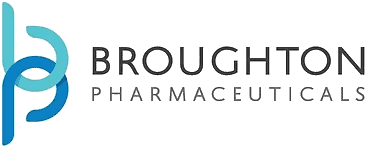We’ve been having a lot of quiet conversations lately with hospital leaders – CFOs, pharmacy directors, buyers. Folks who are deep in the weeds of keeping their systems running.
And the one thing I keep hearing, sometimes said, sometimes just felt, is this:
“We can’t afford one more disruption.” But the disruptions keep coming.
Let’s talk about the one that doesn’t get enough attention: drug shortages, and how they’re quietly contributing to a wave of hospital closures across the country.
748 Hospitals Are at Risk of Closure. And Drug Shortages Are a Key Pressure Point.
You’ve probably seen the headlines. As of 2024, more than 700 rural hospitals, roughly 30% of the total, are at risk of shutting down¹. Nine have already closed this year².
Margins are razor-thin. Staffing is tight. Revenue cycles are inconsistent. Procurement chaos is throwing more fuel on the fire. It’s not just a rural issue. Even large systems are forecasting $250 million budget gaps despite major cost reductions³.
At the center of this pressure cooker? Supply chain instability.
When critical medications can’t be sourced or are only available at inflated prices – hospitals lose the ability to deliver care, book procedures, and plan. Let’s not sugarcoat it. Shortages lead to cancellations. Cancellations kill revenue. Revenue loss leads to closure.
The Real Cost of Drug Shortages Isn’t Just Clinical. It’s Operational
Here’s what happens when a buyer can’t find a critical drug. Surgical cases get delayed or canceled, patients are diverted to other systems, and staff hours are spent scrambling for substitutes. Off-contract purchases are made in a panic, often at huge markups, and revenue quietly slips away.
This isn’t theory. It’s happening every day. According to ASHP, there are over 300 active drug shortages right now⁴. And not just obscure products; these include anesthetics, injectables, chemotherapy agents, and antibiotics. A single canceled procedure can cost the system significant revenue. A week (or more!) of canceled procedures can have a dramatic impact on the bottom line.
Why It Keeps Happening: Broken Signals and Bad Data
The core issue isn’t always the drug itself, it’s the lack of visibility.
Hospitals are operating with outdated tools, fragmented vendor communication, and no clear line of sight into what’s actually happening in the market.
You can’t make smart decisions when you don’t know where to source the product, and you don’t have time to manually cross-check multiple vendors. The result isn’t just inefficiency. It’s missed opportunities, wasted energy, and increased financial risk.
This isn’t a failure of talent. It’s a system that wasn’t built for disruption but disruption is now the norm.
The Systems That Are Staying Ahead Are Acting Differently
The best hospitals are no longer waiting until a shortage hits to respond. They’re shifting from reactive to strategic, investing in real-time market intelligence, building sourcing partnerships that don’t mark up pricing, and expanding access to diverse vendor networks with strong compliance and fulfillment histories.
By making these changes, they’re not just managing costs more effectively, they’re regaining control. They’re reducing the chaos, protecting clinical schedules, and giving their teams more time to focus on patient care instead of chasing products.
As McKinsey puts it, “Organizations must embrace long-term structural changes and data-driven approaches to create operations that are more agile, resilient, and responsive to risk.”⁵
In a system this fragile, that’s not a luxury, it’s a necessity.
Where We Come In
At InformIQ, we’ve made it our job to remove chaos from hospital procurement. We provide:
- Real-time visibility into price, quantity, ETA, and availability from 35+ vendors
- Shortage alerts that distinguish real market signals from false scarcity
- No markup sourcing you pay what we pay
But more than that, we give your team back something even harder to find than budget: time, clarity, and confidence.
When your pharmacy buyer doesn’t have to make 15 calls or second-guess every quote, they can focus on what actually matters: getting patients what they need – fast, safely, and affordably.
We’re not just a sourcing platform, we’re a partner built for this exact moment in healthcare.
The Cliff Is Real. So Is the Opportunity to Step Back From It.
Hospitals don’t close overnight. They close because of a hundred moments where there wasn’t room for error and the system kept demanding more.
We can’t fix the entire system. But we can give your pharmacy and sourcing teams the tools to navigate it better and that’s a start.
Let’s talk about what that would look like for your team.
—
Kenny Stone
Footnotes / Sources
- Becker’s Hospital Review – “More than 700 rural hospitals at risk of closure”
https://www.beckershospitalreview.com/finance/705-hospitals-at-risk-of-closure-state-by-state-november-2024/
- Healthcare Dive – “Hospital closures continue into 2024”
https://www.healthcaredive.com/news/hundreds-rural-hospitals-risk-closing-center-healthcare-quality-payment-reform/723555 - Becker’s – Mass General Brigham Layoffs, Budget Gap
https://www.beckershospitalreview.com/finance/mass-general-brigham-to-begin-2nd-round-of-workforce-reductions.html
- ASHP – Current Drug Shortages
https://www.ashp.org/Drug-Shortages
- McKinsey – Strengthening Medical Supply Chains Post-Pandemic
https://www.mckinsey.com/industries/life-sciences/our-insights/strengthening-the-medical-product-supply-chain-in-the-postpandemic-worldc
